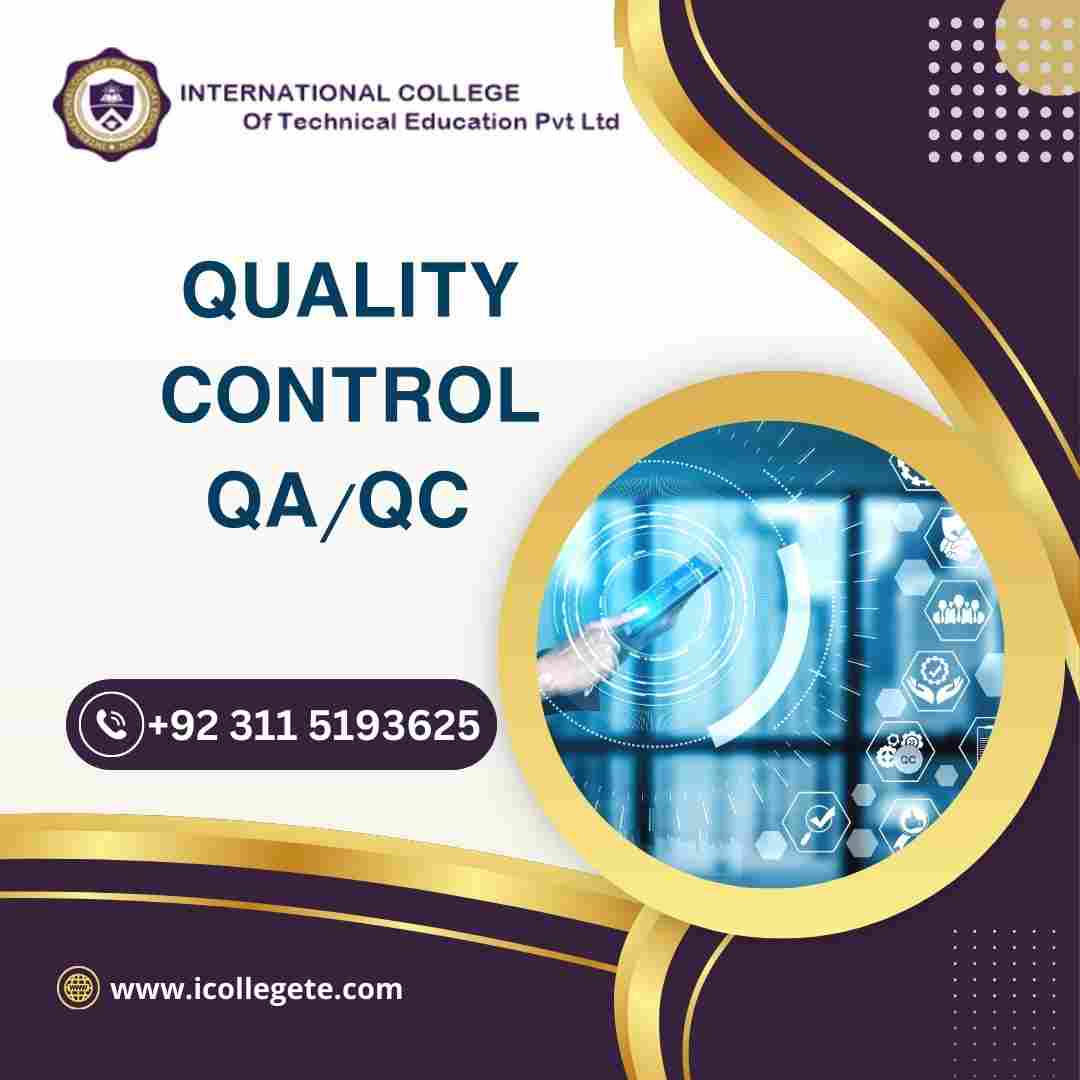
quality control qa/qc course in Bagh Ajk
In the fast-paced and dynamic landscape of modern industries, ensuring the highest standards of quality is imperative for success. This is where Quality Control (QA/QC) courses come into play, offering professionals the knowledge and skills needed to uphold and enhance product and service quality. This blog post will delve into the intricacies of QA/QC courses, exploring their benefits, learning outcomes, study units, target audience, and potential future progressions.
Course Benefits:
Quality Control courses are designed to empower individuals with the tools and techniques necessary to maintain consistent quality in products and processes. Some key benefits include:
Enhanced Professional Skills: Participants gain a comprehensive understanding of quality control principles and methodologies, making them adept at identifying and rectifying issues in various industry settings.
Global Relevance: QA/QC courses are tailored to meet international standards, making graduates equipped to work on a global scale and ensuring the quality of products and services across borders.
Career Advancement: Acquiring expertise in quality control opens doors to advanced career opportunities. Professionals with QA/QC certification are often preferred candidates for managerial and leadership roles.
Learning Outcomes:
Upon completion of a QA/QC course, participants can expect to achieve the following learning outcomes:
Mastery of Quality Concepts: A deep understanding of quality management principles, including process optimization, risk assessment, and continuous improvement.
Application of Tools and Techniques: Proficiency in using quality control tools and methodologies such as Six Sigma, Statistical Process Control (SPC), and Failure Mode and Effects Analysis (FMEA).
Problem-Solving Skills: The ability to identify, analyze, and solve quality-related issues in real-world scenarios.
Study Units:
The curriculum of a typical QA/QC course is structured to cover a range of topics, ensuring a holistic understanding of quality control. Some key study units include:
Introduction to Quality Management Systems (QMS): An overview of quality standards, regulations, and the importance of QMS.
Statistical Techniques for Quality Control: In-depth exploration of statistical tools to analyze and improve processes.
Process Improvement Methodologies: Understanding methodologies like Six Sigma and Lean for continuous improvement.
Auditing and Inspection Techniques: Training on effective auditing and inspection procedures to ensure compliance.
Who is This Course For?
QA/QC courses cater to a diverse audience, including:
Quality Professionals: Individuals already working in quality-related roles looking to enhance their skills and stay current with industry trends.
Managers and Supervisors: Professionals aspiring to managerial positions where quality control plays a pivotal role.
Engineering and Manufacturing Professionals: Those involved in the production and delivery of goods seeking to ensure quality throughout the supply chain.
Future Progression:
Upon completing a QA/QC course, participants open doors to a multitude of career paths. Future progressions may include:
Certifications and Specializations: Graduates can pursue advanced certifications in specific areas of quality control, such as Six Sigma Black Belt or Quality Auditor.
Advanced Degrees: Some may choose to pursue advanced degrees in quality management, business administration, or related fields to further augment their expertise.
Leadership Roles: Armed with comprehensive knowledge and experience, individuals can advance into leadership roles, overseeing quality management systems at an organizational level.
In conclusion, investing in a Quality Control (QA/QC) course is a strategic move for professionals aiming to excel in industries where quality is non-negotiable. By mastering the principles, tools, and techniques of quality control, individuals position themselves for career advancement and become instrumental in driving organizational success.